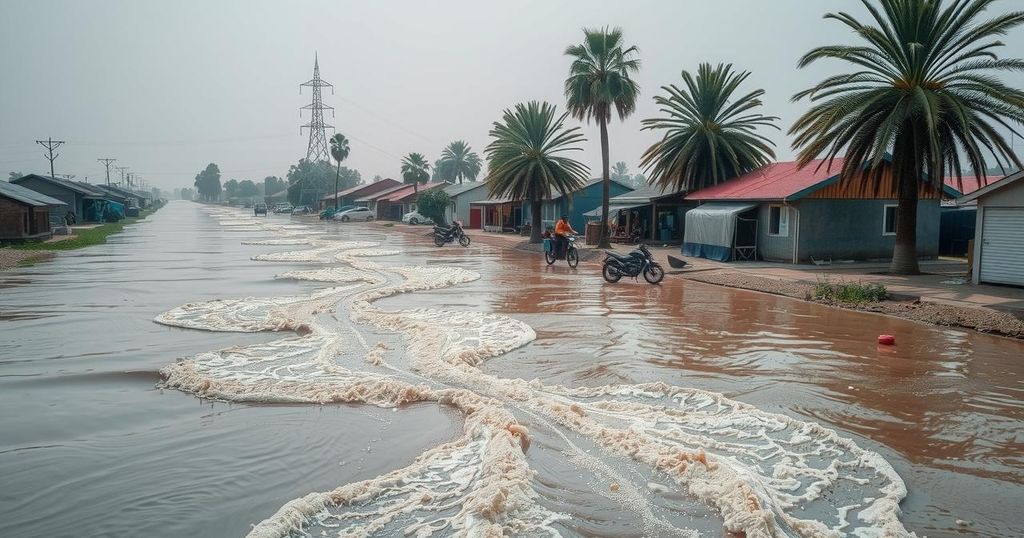South Sudan is grappling with devastating floods from the River Nile, which have displaced over 379,000 individuals, submerged villages, and destroyed farmland. Communities are forced to seek refuge along canals, while the local economy and health services suffer from the compounded difficulties of ongoing civil unrest and a lack of infrastructure. The situation is exacerbated by climate change and reduced international aid.
As the River Nile overflows, South Sudan faces a severe humanitarian crisis, displacing thousands and threatening livelihoods. The floodwaters have submerged entire villages, destroyed farmland, and led to the loss of livestock. Forcing communities onto the banks of canals, many families find refuge in unstable makeshift shelters. This year alone, over 379,000 people have been reported displaced due to recurring floods, which have worsened over the years, partially attributed to upstream dam operations in Uganda. Bichiok Hoth Chuiny, a displaced elderly woman, lamented the dire situation, stating, “Too much suffering,” as she navigated her way to a new settlement in Pajiek, Jonglei State, north of Juba.
Historically, the Sudd wetlands have dictated the seasonal lifestyle of numerous pastoral communities, but increased flooding has now made traditional farming and livestock rearing untenable. Experts note that the communities of Dinka, Nuer, and Murle are facing an unprecedented inability to sustain their livelihoods in Jonglei due to these environmental changes. The economic and social fabric of the region is further strained as South Sudan, since effectively gaining independence in 2011, has struggled with governance issues exacerbated by ongoing civil instability and a lack of infrastructure.
The River Nile’s flooding is part of a chronic cycle worsening in South Sudan, a nation lauded as the world’s most vulnerable to climate change. The World Bank has highlighted that the country’s coping mechanisms are significantly lacking. The environmental impact of climate change coupled with historical neglect of infrastructure has made managing seasonal flooding increasingly difficult. The Jonglei Canal, while originally intended to improve water management, has become a temporary refuge for those displaced, further illustrating the desperation of the situation. The civil strife that erupted in 2013 has compounded the situation, leaving millions in precarious conditions, with shocks from flooding displacing many additional families. The difficulties are mirrored by economic struggles, including a substantial reduction in international aid and ongoing civil service payment disruptions, thereby reducing the overall responsiveness to such humanitarian crises.
In conclusion, the overflowing River Nile continues to have a devastating impact on South Sudan, leading to mass displacement and challenging the resilience of affected communities. The flooding has not only submerged homes and ruined crops but has also posed serious health risks and deprived people of vital services. As the government grapples with the complexities of governance and climate-induced disasters, the plight of displaced individuals and families continues to grow more desperate. International attention and aid will be crucial in assisting these vulnerable populations.
Original Source: www.independent.co.uk






